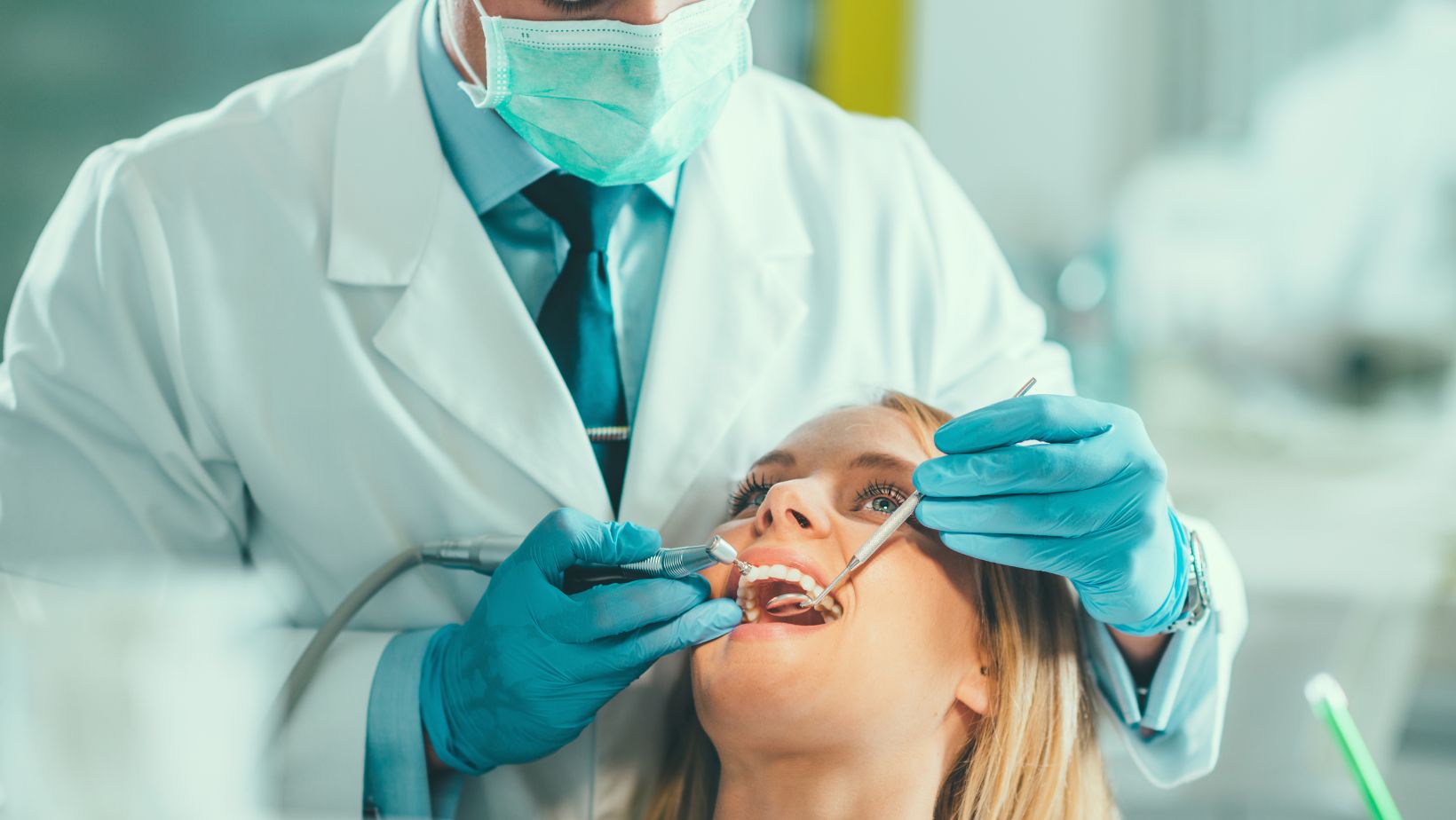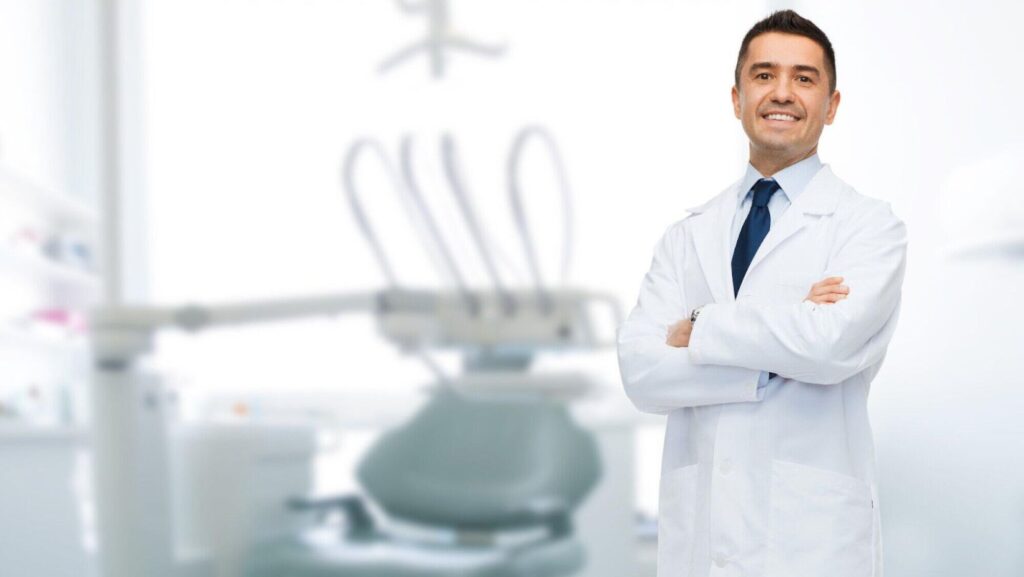Regular dental check-ups are crucial for keeping your smile bright and healthy. They help catch problems early on, like cavities or gum issues, before they get worse. Visiting the dentist every six months can save you from pain and costly treatments down the line.
Plus, having your teeth cleaned professionally keeps your mouth fresh and lowers the risk of serious conditions. So, if you want to preserve your oral health, here are some reasons to stick to a routine dental schedule.
Why Are Regular Dental Check-Ups Important?
Here are some compelling reasons to maintain a regular dental check-up routine:
Early Detection of Dental Issues
Regular dental check-ups help with the early detection of dental issues. Dentists can find problems like cavities or gum disease before they become big issues. This means treatment will be easier and less painful for you. Early detection also helps prevent the need for more complex procedures later.
Regular visits allow your dentist to monitor your oral health and make recommendations. With experienced professionals, like the Best Dentist in Dallas, you can ensure your teeth and gums stay in the best condition possible.
Preventive Care
Preventive care focuses on stopping dental problems before they start. During regular check-ups, dental services like cleanings remove plaque and tartar that lead to decay and gum disease. Fluoride treatments can strengthen your teeth, making them more resistant to cavities.
Dentists also offer advice on how to maintain good oral hygiene at home. This includes proper brushing and flossing techniques. By using these dental services, you can reduce the risk of developing serious dental issues and maintain a healthy smile.
Oral Health Education
Oral health education is a crucial part of keeping your teeth and gums healthy. During your dentist appointment, you can learn the right way to brush and floss your teeth. Dentists offer easy tips to follow at home, such as how long to brush and how to clean between teeth with floss.
They also teach you what foods and drinks to avoid, as some can damage your teeth. Learning these basics from your dentist can make a big difference in maintaining a healthy smile. Regular lessons in oral health help you take control of your dental hygiene and prevent future problems.
Maintaining Overall Health
Maintaining overall health is closely linked with dental care. Good oral hygiene can impact your entire body. For instance, a healthy mouth can prevent infections that might affect your heart or lead to complications with other diseases. Regular brushing, flossing, and dental check-ups help keep bacteria in check.
This reduces the risk of gum disease, which has connections to conditions like diabetes and heart disease. By prioritizing dental care, you contribute to a healthier lifestyle. It is important to see your dentist regularly to help catch any potential problems early and maintain good overall health.
Improving Self-Confidence
Improving self-confidence often starts with a great smile. When you feel good about your teeth, you’re more likely to smile often. This can boost your confidence in social situations. Regular visits to the dental office can help you maintain a healthy and attractive smile.
Clean, bright teeth make you feel more positive about yourself. Dentists can help with whitening treatments or fixing any dental issues that may make you self-conscious. By keeping up with regular dental care, you ensure that your smile is at its best, which can naturally improve your self-esteem.
What to Expect During a Dental Check-up
Here are some of the key components you can expect during a routine dental check-up:
Examination
During a dental check-up, the examination process is straightforward and thorough. The dentist will first look at your teeth and gums to check for any obvious issues. They will use a small mirror and tools to examine all areas of your mouth. This helps them spot signs of decay or gum disease early on.

X-rays might be taken to see below the surface of your teeth and jaws. These images help find problems that are not visible directly, like cavities between teeth. Your dentist will also check for signs of oral cancer by looking at your tongue, throat, and neck.
They will ask about any pain or discomfort you’ve been experiencing. The examination gives the dentist a complete picture of your oral health.
Cleaning
Cleaning is a standard part of any dental check-up. The dental hygienist will first remove plaque and tartar from your teeth. They use special tools to ensure all areas in your mouth are reached and thoroughly cleaned. This helps prevent decay and gum disease.
After removing the buildup, they polish your teeth to make them smooth and shiny. Polishing also helps to remove surface stains, giving your teeth a brighter appearance. Finally, they may floss your teeth to ensure nothing is stuck between them. The cleaning process keeps your teeth healthy and your smile looking fresh.
Evaluation
Evaluation is an important step during a dental check-up. After the cleaning, your dentist evaluates the overall condition of your teeth and gums. They discuss any issues found during the examination or cleaning. The dentist will explain what these findings mean for your oral health.
If problems are detected, they will recommend necessary treatments. This could include filling a cavity or treating gum disease. The evaluation also gives you a chance to ask questions. You can discuss any concerns you have about your teeth. This part of the check-up helps you understand your dental health better and maintain it over time.
Advice and Recommendations
After your dental check-up, your dentist will offer simple advice to keep your mouth healthy. They might suggest brushing your teeth twice a day with fluoride toothpaste. Flossing daily helps clean between teeth where a brush can’t reach. Your dentist may also recommend cutting down on sugary foods and drinks to prevent cavities.
Drinking plenty of water and eating a balanced diet can support your oral health too. If any issues were found, the dentist will tell you what you need to do next. This might involve scheduling a follow-up appointment or getting a specific treatment. Following these recommendations will help keep your smile bright and your teeth strong.
X-Rays
X-rays are an essential part of a dental check-up. They help dentists see problems that are not visible during a regular exam. For instance, X-rays can show cavities between teeth and issues with the bones in your jaw. This makes it easier for the dentist to treat any hidden dental issues.
The process is quick and painless. You will bite down on a small piece of plastic while the X-ray is taken. This helps capture a clear image of your teeth and jaws. Regular X-rays help ensure that your mouth is healthy and no issues are left unnoticed.
Fluoride Treatment
Fluoride treatment is a simple way to protect your teeth. It strengthens the enamel which is the outer layer of your teeth. Strengthened enamel helps guard against cavities and decay. During a dental check-up, the dentist applies fluoride in a gel or varnish form.
This treatment is quick and usually takes just a few minutes. It is painless, making it comfortable for both adults and children. Fluoride helps in repairing small cavities that may not need filling yet. Many dentists recommend fluoride treatments every few months. They are a vital part of maintaining strong and healthy teeth over time.
Oral Cancer Screening
Oral cancer screening is a key part of your dental check-up. During this screening, the dentist checks your mouth for signs of cancer. They look at your lips, tongue, throat, and neck for any unusual spots or sores. It’s a quick and painless process.
Early detection of oral cancer can significantly improve treatment outcomes. The dentist may also ask if you have noticed changes in your mouth. Regular screenings are important because they can catch cancer early.
This helps ensure you stay healthy. By having these screenings regularly, you improve your chances of detecting any issues early on.
Diagnosis of Dental Problems
Diagnosis of dental problems is crucial for maintaining good oral health. During a check-up, the dentist looks for signs of common issues like cavities and gum disease. They use tools like mirrors and probes to examine your mouth thoroughly. If needed, they take X-rays to find hidden problems.
By identifying issues early, dentists can provide simpler treatments. For example, filling a cavity is easier than treating a root canal. This approach saves time and discomfort for the patient. It also reduces the risk of developing more serious dental problems. Regular check-ups help in diagnosing and treating dental issues effectively.
How Often Should You Have a Dental Check-Up?
Here are some guidelines to help you determine how often you should have a dental check-up:
Recommended Frequency
Most dentists recommend having a check-up every six months. This schedule helps catch problems early and keep your teeth healthy. However, some people might need to visit more often. If you have a history of dental issues, your dentist might suggest more frequent visits.
People with gum disease or a high risk of cavities could also benefit from seeing the dentist regularly. Children should follow the same routine to ensure their teeth develop properly. Discuss with your dentist about the right schedule for you to maintain optimal oral health.
Factors Affecting Frequency
Various factors can impact how often you need dental check-ups. If you have a history of cavities or gum disease, frequent visits may be necessary. Smoking or using tobacco can increase the risk of dental problems, requiring more check-ups.
Patients with diabetes might face higher risks of gum issues and should consider more regular dental care. Pregnant women often need more frequent check-ups due to changes in hormones affecting oral health. Age can also play a role; children and older adults may have different dental care needs.
Lastly, an individual’s overall oral hygiene habits can influence check-up frequency. If you’re taking good care of your teeth at home, you might need less frequent visits. Always consult your dentist to determine the best schedule for your dental health needs.
Special Considerations for Children
Children need special dental care as their teeth are still developing. It’s important to help them develop good oral hygiene habits early. Regular check-ups are key to monitoring their teeth and jaw growth. Dentists can spot issues like cavities or crooked teeth sooner.
This allows for simpler solutions, like braces, when necessary. Parents should encourage brushing twice a day with fluoride toothpaste. Kids should also floss daily to remove any food particles. Limiting sugary snacks can prevent cavities. Regular dental visits teach children the importance of oral health, setting them up for a lifetime of healthy habits.
Additional Visits
Some situations might require additional visits to the dentist. If you experience any tooth pain or discomfort, you should see your dentist right away. Addressing issues as they arise can prevent them from worsening. Emergency visits may be needed if you have broken a tooth or lost a filling.
These problems should be fixed quickly to avoid extra damage. Visiting the dentist if you notice changes in your mouth, such as sores or swelling, is also important. These changes could indicate underlying issues. Regular follow-ups are also recommended after dental procedures like extractions. This ensures proper healing and care for your oral health.
Choosing the Right Dentist
Choosing the right dentist is essential for a positive dental care experience. Look for a dentist who has a comfortable and clean office environment. It’s important that the dentist and staff are friendly and attentive to your needs.

Check if the dentist has good reviews or comes recommended by friends and family. Schedule a visit to meet the dentist and ensure they make you feel at ease.
Learn All About Regular Dental Check-Ups
In conclusion, regular dental check-ups are crucial for maintaining healthy teeth and gums. They help prevent potential issues, ensuring a bright smile and boosting self-confidence.
By following your dentist’s advice and maintaining good oral hygiene, you contribute to overall health. Prioritizing dental care ensures you’re taking the right steps towards a healthier and happier life.
Did you find this article helpful? Check out the rest of our blog.
